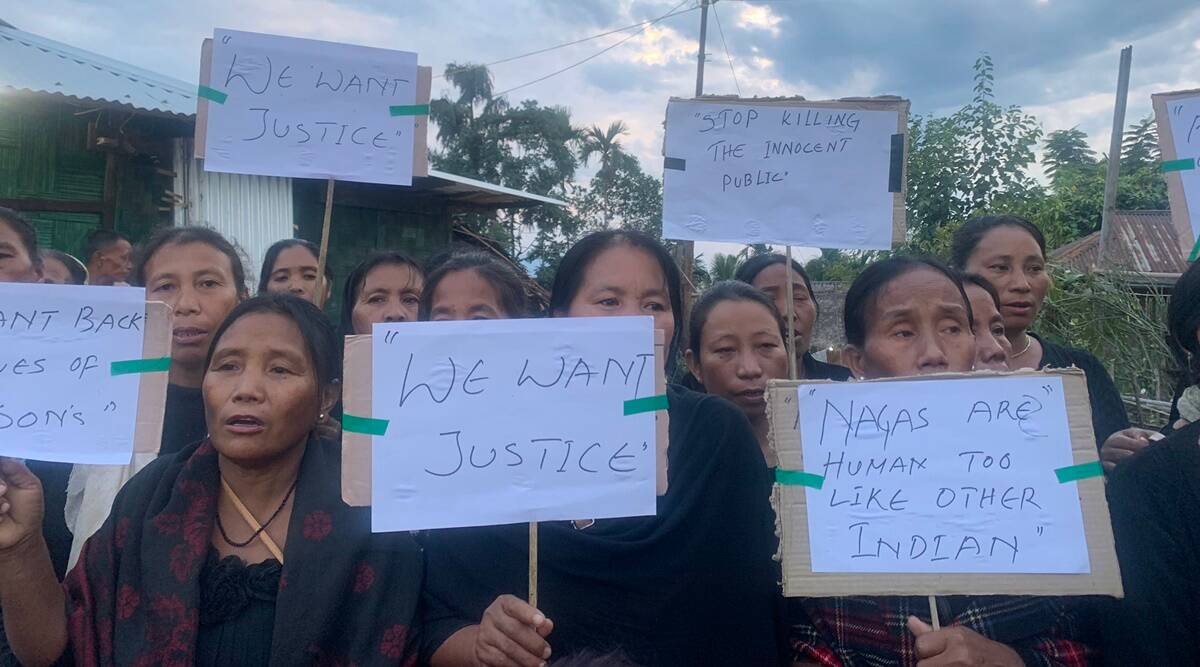By M. Sashi Jamir
As Nagas near towards the completion of the first quarter of the 21st century, it is vital to calmly and without any strings attached retrospect their current socio-political crisis and decide on the trajectory they want to embark on. The world today finds itself in a unique position – China asserting its power in the global stage persistently, the pandemic of Covid-19 continues to challenge every nation with its fuller consequences yet to realize, ecological crisis of cataclysmic proportion appears to be looming in the horizon. It is within this global scenario Nagas ought to ask some straightforward but penetrating questions such as: Who are we? What have gone wrong? And what is the solution?For once these questions need to be answered objectively without letting our emotional prejudices and avarice dilute our vision.
Of late a narrative has been weaved of the Nagas as a case of self-inflicted tragedy. This needs to be put in right perspective. Nagas’ journey since 1947 has been singularly consumed by her aspirations for self-determination. There is no doubt that the conflict between India and Nagas has exerted the Nagas mentally, physically and morally. However, no Naga will claim that it is wrong to assert their self-determination. The fact is that Nagas have been forced to live in an artificial political system with constant tinkering of external reconnaissance. In such an environment it is just not possible for a people group to be organic and unadulterated. Yet the Nagas as a whole, despite the vicious effort of the external force,have remained committed to their aspirations.
The work of the propagandistic machinery of the external force has no doubt made the vision of the Naga society opaque. The former has achieved in creating deep friction among Naga tribes. Moreover, it has also made the Nagas outlandishly crave for money and power at the expense of common good for the society. These impacts have caused such a myriad of social misery and triggered a fast downward spiral of political disintegration. Nagas as a patriotic people should be able to visualize and name the evils that not only threaten but also have become the cancer of our ailing society. It is now or never that the Nagas should unite and take swift and pragmatic decision towards fulfilling their aspirations.
There are Nagas who have become disillusioned and apathetic toward their perennial struggle for self-determination. For many of them the Naga conflict is senseless because it does not appear to have existential relevance to their lives. A sympathetic ear should be lent to this section of people. Concurrently, the disillusioned Nagas should understand the complexity that has been injected to the Naga conflict by the external force. Nagas need to be weary about the fabricated story that is circulating today – the story that it is Nagas who are killing one another, desecrating churches and destroying their own society instead of developing. Interestingly such story is weaved by some people who have succeeded the prestigious Indian Civil Services. Individuals with such distinction should be able to display sound judgment.
The aforementioned narrative is fabricated because it is unintelligent and lacks critical analysis of the actual happenings. In fact if one looks at the Naga history it is vivid that Naga villages were burnt down, people were put in concentration camps, women were raped inside the church and Indian army was given the right to draconian law. In spite of all these obstructions it is commendable that the Nagas have labored through this rough terrain, although not without consequences.
But the present reality demands on the Nagas to come together and objectively review their vision understanding the intricate presence of the external agents that have made the present context complex and almost unrecognizable of the pristine vision of the Nagas. It is crucial, therefore, that Nagas should be able to transcend their man made exertions and work together to achieve their rightful aspirations. To that end, may God grant the Nagas unity and wisdom.
The writer is a senior faculty member at Oriental Theological Seminary, Bade, Dimapur, Nagaland







 Meet R.N. Ravi, who is mediating peace with the Nagas
Meet R.N. Ravi, who is mediating peace with the Nagas The Top Viral YouTube Videos of 2017
The Top Viral YouTube Videos of 2017 An orbiting message of peace
An orbiting message of peace What Does Your Face Say About Your Health?
What Does Your Face Say About Your Health?










Leave a Reply
Your email address will not be published. Required fields are marked (required)